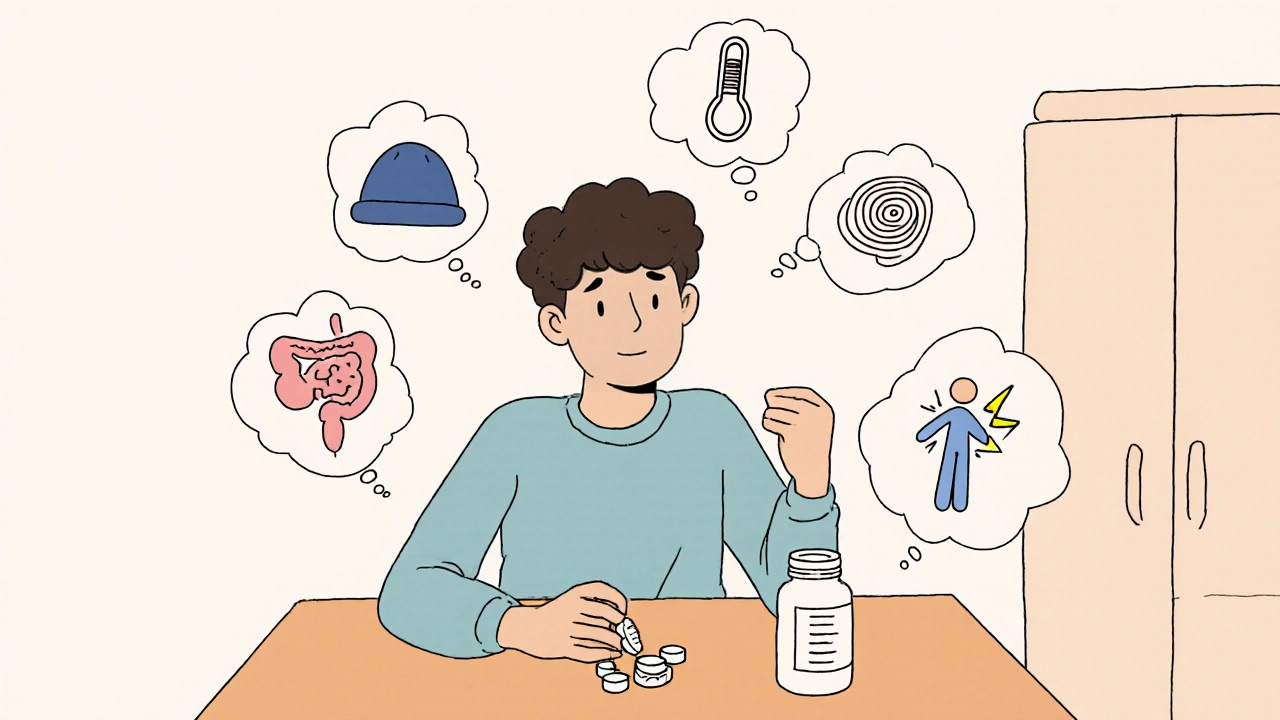Learn what antidepressant discontinuation syndrome is, its common symptoms, why some drugs cause worse withdrawal, and how to taper safely to avoid severe effects.
SSRI Withdrawal: Symptoms, Causes, and What to Expect
When you stop taking an SSRI, a type of antidepressant that increases serotonin levels in the brain. Also known as selective serotonin reuptake inhibitor, it isn’t like quitting caffeine. Stopping suddenly can trigger a real physical and emotional reaction called SSRI withdrawal, a set of symptoms that occur when the body adjusts to lower serotonin levels after stopping the medication. This isn’t addiction—it’s your nervous system recalibrating. Millions of people experience this, but few are warned about it before they quit.
SSRI withdrawal doesn’t happen to everyone, but when it does, it shows up fast. Common signs include dizziness, brain zaps (those sudden electric-shock feelings in your head), nausea, insomnia, anxiety spikes, and mood swings. Some people feel like they’re coming down with the flu. Others get overwhelming sadness or even panic attacks. These symptoms usually start within a few days of missing a dose and can last from a week to several months, depending on how long you were on the drug and how fast you stopped. The key is timing: stopping too quickly is the biggest cause. Drugs like paroxetine and venlafaxine are known to cause worse withdrawal because they leave your system faster. Fluoxetine, on the other hand, sticks around longer, so withdrawal tends to be milder.
What makes this confusing is that many of these symptoms look like depression coming back. That’s why so many people think they need to go back on the pill—when really, their body just needs time to adjust. The solution isn’t always restarting the medication. Often, it’s slowing down the process. A slow, doctor-guided taper, a gradual reduction in dosage to minimize withdrawal symptoms can make all the difference. Some people cut their dose by 10% every few weeks. Others switch to a longer-acting SSRI like fluoxetine before cutting down. There’s no one-size-fits-all plan, but most people who taper feel better faster than those who quit cold turkey.
There’s also no magic supplement or herbal fix that reliably stops SSRI withdrawal. While some try omega-3s, magnesium, or CBD, there’s little solid proof they help. What does help? Sleep, hydration, gentle movement, and patience. Avoid alcohol and caffeine—they make brain zaps and anxiety worse. Keep a symptom journal. Track what you feel each day. It’s not just for your doctor—it helps you see progress when it feels like you’re stuck.
If you’re thinking about stopping your SSRI, don’t do it alone. Talk to your prescriber. Ask about tapering schedules. Ask what symptoms to watch for. And if you’ve already stopped and are struggling, know this: you’re not weak, and you’re not failing. Your brain is adapting. The good news? Every single person who goes through this eventually gets back to normal. It just takes time. Below, you’ll find real stories, practical advice, and clear comparisons from people who’ve been there—and what actually worked for them.

